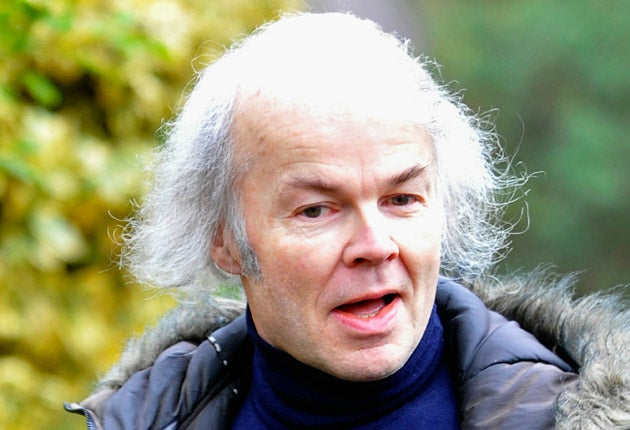Convicted by the press, now released without charge
Former suspect in Joanna Yeates case may sue over character assassination

He was the "creepy" blue-haired landlord with "peeping tom" tendencies who was "obsessed with death". But it appears that Chris Jefferies was guilty of nothing more than being a British eccentric, after being formally cleared yesterday of any involvement in the murder of Joanna Yeates.
Jefferies, 66, has now been released from bail conditions, Avon and Somerset Police confirmed. The retired public school teacher was arrested on suspicion of murder after the frozen body of the landscape architect was discovered on Christmas Day.
Mr Jefferies, whose flat was in the same block in Clifton, Bristol, as that of Miss Yeates and her boyfriend, was held for three days as detectives investigated. Three weeks later the Dutch engineer Vincent Tabak, who lived next door to Miss Yeates, was charged with the 25-year-old's murder. Mr Jefferies has lived at a secret address since his arrest prompted a series of lurid media reports about his "eccentric" appearance and background.
He has put his flat up for sale for £245,000. The former head of English at Clifton College, a leading independent school, was described as a "nosy" landlord for refusing to let a couple put up net curtains for their privacy.
One report claimed he "traumatised 14-year-old boys by showing them X-rated horror films". Mr Jefferies had screened the 1961 British film The Innocents, starring Deborah Kerr, for English students in the mid-1970s.
Paul Okebu, of the solicitors Stokoe Partnership, said he was awaiting instruction from his client over possible legal action against media groups, following what Anna Soubry, a Conservative MP, described as an "outrageous" campaign of "vilification".
She introduced a private member's Bill in Parliament which would make it illegal for a newspaper or broadcaster to name someone arrested or questioned by police until they are charged. The Government is not supporting the Soubry bill, but Dominic Grieve, the Attorney General, is conducting a review of the 1981 Contempt of Court Act, which makes it an offence to publish information "tending to interfere with the course of justice, in particular legal proceedings". Mr Grieve is examining tighter restrictions on the material published between an arrest and a possible charge, according to Government sources.
A spokesman said: "The Attorney General is reviewing how the courts interpret the strict liability rule in relation to pre-trial publicity, particularly that which takes place some months before any potential trial."
The Jefferies arrest prompted a wave of comments on Twitter – material that might have been deemed prejudicial in a trial but which lies outside the control of media organisations.
However, media lawyer Mark Stephens said he did not believe the Jefferies case merited a change in the law. "Being named can actually prompt members of the public, who are unknown to the suspect, to come forward and confirm an alibi," he said.
Mr Jefferies may find it hard to make a libel case stick. "No one's reputation is likely to be enhanced by being interviewed by the police in connection with a murder but mud doesn't stick, it quickly washes off," Mr Stephens said.
Mr Jefferies could pursue an invasion of privacy case against media groups. His solicitor said his client was now considering a series of requests to speak publicly about his experience.
Bookmark popover
Removed from bookmarks